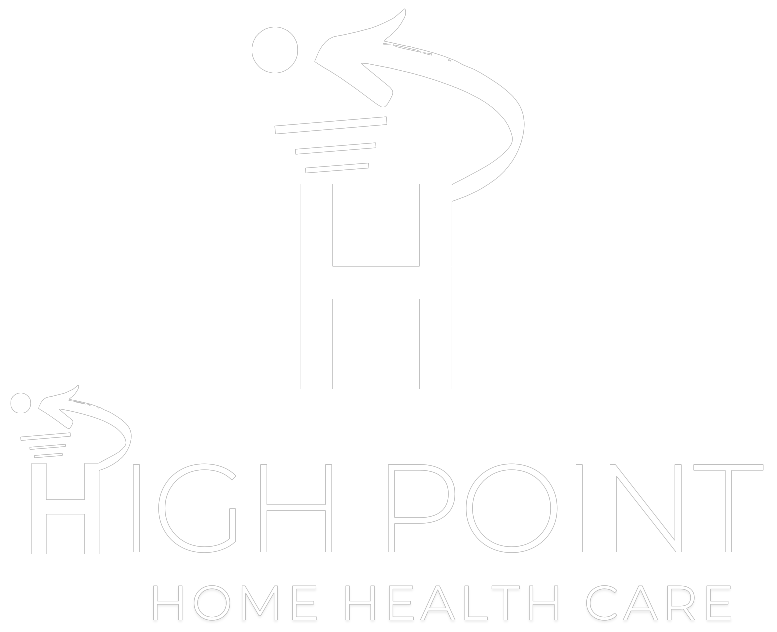Watching a loved one struggle with daily life can be heartbreaking. You may sense something is “off,” but you’re not sure if it’s time to step in with professional support. Many families delay seeking help simply because they don’t know the signs that in-home care might be needed.
At HighPoint Home Healthcare, we help families recognize when it’s time—and how to make the transition with dignity and compassion.
Here are 10 signs your loved one may need in-home care, and how the right care can bring peace of mind to everyone involved.
1. Decline in Personal Hygiene
Have you noticed body odor, unwashed hair, or clothes worn multiple days in a row? These changes can indicate your loved one is having trouble with basic hygiene, such as bathing, grooming, or laundry. In-home caregivers assist with these tasks, restoring dignity and comfort.
2. Unexplained Bruises or Injuries
Frequent falls or bumps may signal issues with mobility or balance. Falls are a serious risk for older adults and can lead to long hospital stays. A caregiver can help with walking, transferring, and fall prevention, based on professional assessments.
3. Messy or Unsafe Living Conditions
A once-clean home may now be cluttered, dirty, or even unsafe. Unwashed dishes, piled laundry, and expired food are common red flags. Caregivers help with light housekeeping, laundry, meal prep, and organization, creating a clean and safe environment.
4. Forgetting to Take Medications
Medication management is crucial. If your loved one is missing doses, mixing up prescriptions, or confused about their schedule, it can lead to dangerous complications. At HighPoint, we provide medication reminders, organization, and monitoring, in coordination with physicians.
5. Sudden Weight Loss or Poor Nutrition
If your loved one is losing weight or not eating well, it may be due to difficulty cooking, grocery shopping, or simply forgetting to eat. Our caregivers support meal planning, cooking, and feeding, with attention to dietary needs and doctor-recommended nutrition plans.
6. Withdrawal from Social Activities
Is your loved one spending more time alone or avoiding friends and family? Isolation can increase the risk of depression and cognitive decline. Companion care brings back connection and joy through conversation, outings, and engagement.
7. Memory Loss or Confusion
Forgetting names, repeating stories, or wandering can signal the early stages of dementia or Alzheimer’s. Home care can provide structured routines, supervision, and mental stimulation while easing the burden on family caregivers.
8. Difficulty Managing Daily Tasks
Struggling with tasks like paying bills, making appointments, or organizing mail may indicate cognitive or physical decline. In-home caregivers can assist with errands and help maintain routines that support independence.
9. Family Caregiver Burnout
Are you exhausted, stressed, or feeling guilty? If you’re the primary caregiver, your well-being matters too. In-home care gives you time to rest, recharge, or focus on work and family—knowing your loved one is in good hands.
10. Recent Hospitalization or Worsening Health Condition
After a hospital discharge or medical emergency, your loved one may need temporary or ongoing care. We offer post-hospital care, skilled nursing, and 24-hour support to ensure recovery happens safely at home.
What to Do If You Notice These Signs
If several of these signs feel familiar, you’re not alone—and it’s time to have a conversation about care.
At HighPoint Home Healthcare, we guide families through every step:
- A free consultation to assess your needs
- Personalized care plans based on medical and personal needs
- Thoughtful caregiver matching based on skills and personality
- A care team that’s diverse, trained, and compassionate
We’re here to listen, support, and provide care that truly feels like family.
Ready to Take the Next Step?
📞 Request a Free Consultation
Let us help your loved one age with dignity in the comfort of home. Our friendly team is just a phone call or message away.


